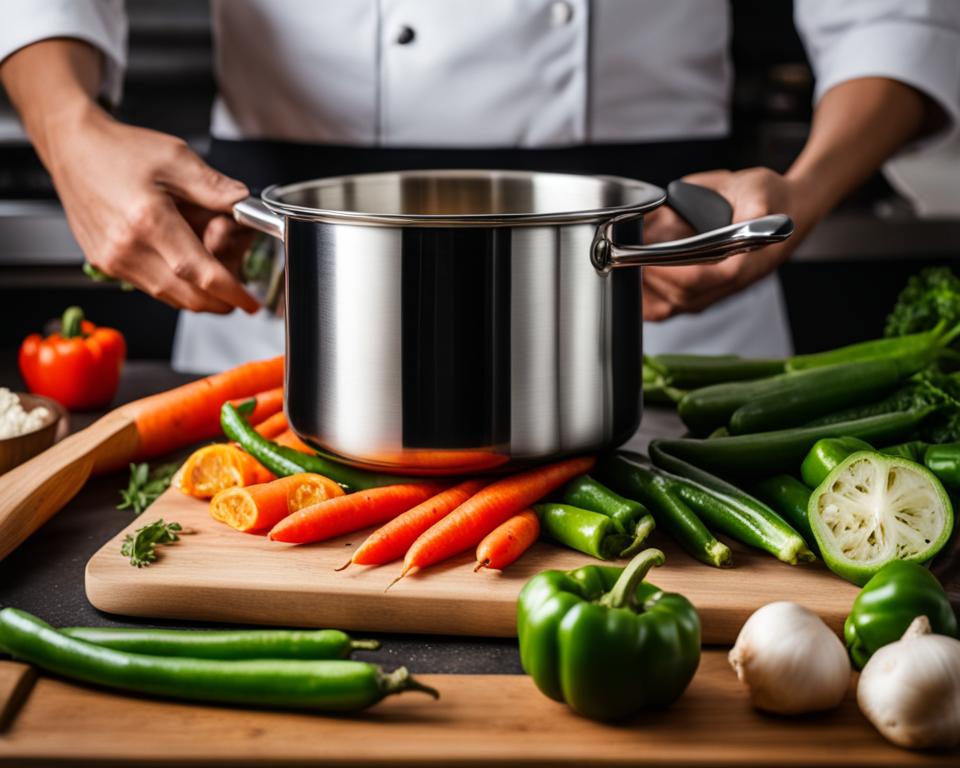Does Stainless Steel Need Oiling?
Stainless steel is a type of steel that is corrosion-resistant due to the presence of chromium. It is often used in kitchens and bathrooms because it is easy to clean and maintain. However, some people wonder if stainless steel needs to be oiled in order to maintain its shine and prevent rust.
The answer is no, stainless steel does not need to be oiled. In fact, oiling stainless steel can actually damage the finish. The oil will create a barrier between the stainless steel and the air, which can trap moisture and cause the steel to rust.
If you want to keep your stainless steel looking its best, simply clean it with a mild detergent and water. You can also use a stainless steel polish to remove any minor scratches or blemishes.
If you are concerned about rust, you can apply a rust-resistant coating to your stainless steel. However, this is not necessary for most applications.
So, there you have it. Stainless steel does not need to be oiled. Just keep it clean and dry, and it will last for many years to come.
Does Stainless Steel Need Oiling?
No, stainless steel does not need to be oiled in order to maintain its shine and prevent rust. In fact, oiling stainless steel can actually damage the finish and make it more likely to rust.
Stainless steel is a corrosion-resistant alloy that is made up of iron, chromium, and other elements. The chromium in stainless steel forms a protective layer on the surface of the metal that prevents oxygen and other elements from corroding the metal. This protective layer is called a passive film.
Oiling stainless steel can damage the passive film and make it more likely to rust. This is because oil can trap dirt and moisture against the surface of the metal, which can create an environment that is conducive to corrosion.
If you want to keep your stainless steel looking its best, you should avoid oiling it. Instead, you should clean it regularly with a mild detergent and water. You can also polish stainless steel to help restore its shine.
Does Stainless Steel Need Oiling?
No, stainless steel does not need to be oiled in order to maintain its shine and prevent rust. In fact, oiling stainless steel can actually damage the finish and make it more susceptible to rust.
Stainless steel is a corrosion-resistant alloy that contains chromium, nickel, and other metals. The chromium in stainless steel forms a protective layer on the surface of the metal that prevents rust from forming. This layer is called a passive film, and it is self-healing, meaning that it will repair itself if it is scratched or damaged.
Oiling stainless steel can interfere with the formation of this passive film. The oil can trap dirt and debris, which can scratch the surface of the metal and allow rust to form. Oil can also make it difficult for the passive film to repair itself, which can lead to more rust.
If you want to keep your stainless steel looking its best, you should avoid oiling it. Instead, simply clean it with a mild detergent and water, and dry it thoroughly. You can also use a stainless steel polish to help protect the finish and keep it looking shiny.
4. Does Stainless Steel Need Oiling?
No, stainless steel does not need to be oiled in order to maintain its shine and prevent rust. In fact, oiling stainless steel can actually damage the finish and make it more susceptible to rust.
Stainless steel is a corrosion-resistant alloy that contains chromium, which forms a protective layer on the surface of the metal that prevents rust. Oiling stainless steel can interfere with this protective layer and make it more likely to rust.
If you want to clean stainless steel, you can use a mild detergent and water. You can also use a commercial stainless steel cleaner, but be sure to follow the directions on the product label.
If you want to polish stainless steel, you can use a mild abrasive cleaner or a polishing cloth. You can also use a commercial stainless steel polish, but be sure to follow the directions on the product label.
5. How to Clean Stainless Steel
Stainless steel is a durable material that can withstand a variety of cleaning methods. However, it is important to use the right cleaning products and methods in order to avoid damaging the surface of the stainless steel.
Here are some tips for cleaning stainless steel:
- Use a mild detergent and warm water.
- Avoid using harsh chemicals or abrasive cleaners, as these can damage the surface of the stainless steel.
- Do not use steel wool or other abrasive materials, as these can scratch the surface of the stainless steel.
- Rinse the stainless steel thoroughly with water to remove all of the soap residue.
- Dry the stainless steel with a soft cloth.
If the stainless steel is stained, you can use a vinegar and baking soda solution to clean it. To do this, mix equal parts vinegar and baking soda in a bowl. Apply the solution to the stain and let it sit for a few minutes. Then, scrub the stain with a soft cloth and rinse the stainless steel with water.
You can also use a commercial stainless steel cleaner to clean your stainless steel appliances. Be sure to follow the directions on the product label.
Stainless steel is a relatively easy material to clean, but it is important to use the right cleaning products and methods in order to avoid damaging the surface.
6. Does stainless steel need oiling?
No, stainless steel does not need to be oiled in order to maintain its shine and prevent rust. In fact, oiling stainless steel can actually damage the finish and make it more likely to rust.
Stainless steel is a corrosion-resistant alloy that contains chromium, which forms a protective layer on the surface of the metal that prevents rust. Oiling stainless steel can interfere with this protective layer and make it more likely for the metal to rust.
If you want to keep your stainless steel looking its best, simply clean it with a mild detergent and water and dry it thoroughly. You can also use a stainless steel polish to brighten the finish.
VII. How to Protect Stainless Steel
Stainless steel is a durable material that can last for many years with proper care. However, there are a few things you can do to protect your stainless steel from scratches, rust, and other damage.
Here are a few tips for protecting your stainless steel:
- Use a soft cloth to clean your stainless steel.
- Avoid using harsh chemicals or abrasive cleaners on your stainless steel.
- Rinse your stainless steel thoroughly after cleaning it.
- Dry your stainless steel completely after cleaning it.
- Do not store your stainless steel in a humid environment.
- If your stainless steel does become scratched or damaged, you can repair it by using a stainless steel polish.
By following these tips, you can help to protect your stainless steel and keep it looking its best for many years to come.
How to Repair Stainless Steel
Stainless steel is a durable material, but it can still be damaged. If your stainless steel is scratched, dented, or otherwise damaged, you can repair it yourself with a few simple steps.
1. **Clean the damaged area.** Use a mild detergent and water to clean the damaged area. Be sure to remove all dirt, grease, and other debris.
2. **Apply a repair compound.** There are a variety of different repair compounds available on the market. Choose one that is specifically designed for stainless steel. Follow the directions on the product label.
3. **Buff the repair compound.** Once the repair compound has dried, buff it with a soft cloth until the surface is smooth.
4. **Apply a protective coating.** To help protect your stainless steel from future damage, apply a protective coating. There are a variety of different protective coatings available on the market. Choose one that is specifically designed for stainless steel. Follow the directions on the product label.
By following these steps, you can repair minor damage to your stainless steel and keep it looking its best.
IX. When to Replace Stainless Steel
Stainless steel is a durable material that can last for many years with proper care. However, there are some instances when it may be necessary to replace stainless steel. These include:
- When the stainless steel is damaged beyond repair
- When the stainless steel is no longer meeting your needs
- When the stainless steel is no longer in style
If you are considering replacing your stainless steel, it is important to weigh the pros and cons of doing so. Stainless steel is a high-quality material that can last for many years, but it can also be expensive to replace. It is important to make sure that you are making the right decision before you take the plunge.


